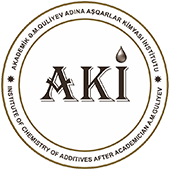The technology will be ready within a few weeks but the researchers are still looking to partner with a manufacturer for large-scale production
Researchers at the University of Lille are working on a new, rapid Covid-19 test that connects to a smartphone and can provide results in around 10 minutes.
The system is based on the development of a biosensor called CorDial, used for the rapid detection of Covid-19 biomarkers. A detection strip is plugged into a smartphone and results can be given shortly after.
The samples must be taken by specialists.
Sabine Szunerits, a professor in Chemistry at the University of Lille and one of the initiators of the CorDial project, said you will be able to know if you are “positive or negative [for Covid-19] after around 10 minutes”.
“We know that our test is consistent to around 88% with negative and positive PCR tests, which is very good,” she told Franceinfo.
PCR tests are the most established tests for Covid-19 due to their high level of accuracy.
The CorDial project is one of a number of Covid-related initiatives being researched by a University of Lille task force.
The task force website states that the CorDial tests “show excellent sensitivity and accuracy”.
“CorDial meets the need for rapid diagnosis in emergency care situations (admissions, hospitalisations, invasive and surgical procedures, etc.),” the website states.
Prof Szunerits said, “We are currently improving the procedure and if all goes well it will be possible to do this test with saliva. We are in the process of confirming these tests with PCRs”.
She said that the technology will be ready within a few weeks and that the researchers are now looking to partner with a manufacturer to mass produce the tests.
“At the moment, we do everything in the laboratory, so we manage to make 1,000 a week, but no more,” she said.
“We have a few leads in France [to find a manufacturer] and we really hope that this will materialise quickly because the stakes are very high.
“We haven’t yet made contact with the government, but if we don’t find a manufacturer, we’ll get in touch with them.”
The CorDial project received funding last year from the European Commission.


